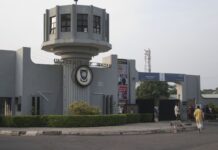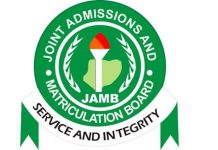The registrar, Joint Admissions and Matriculation Board, Prof. Ishaq Oloyede, has disclosed that the board remitted over N50 billion to the federal government in the last six years.
Oloyede stated this in a paper “The imperative of JAMB in tertiary education in Nigeria,” he delivered yesterday in Abeokuta, Ogun State, as part of the 13th Gbagura Day celebration.
He ruled out exploitation of candidates in the course of board’s revenue generation.
He said contrary to the positions of critics who argued that JAMB should not generate funds for the government, the charges are minimal compared with similar charges within and outside Nigeria.
He said the N50 billion surplus was recorded under his watch due to measures put in place on “cost control, prevention of financial leakages and minimisation of financial corruption.”
Oloyede said the surplus funds included over N29 billion directly returned into the consolidated revenue fund, N11 billion disbursed on capital projects and savings of about N6 billion among others.
“The recent strategic and structural innovations in JAMB have resulted in significant impacts on the Board in areas such as cost control, prevention of financial leakages and minimisation of financial corruption. This has changed the narratives such that JAMB now posts humongous returns to the Consolidated Revenue Fund.
“The Board also expanded internal capacities for its operations with direct execution of processes and procedures. Currently, over N50 billion has been recorded as a surplus in the past six years. Over N29 billion of this has been returned directly to the CRF. About N11 billion disbursed on capital projects, corporate social responsibility, savings (about N6bn) and others in contrast to about N52 million that had been the cumulative return of the previous 40 years,” he said.
In the lecture, Oloyede identified examination malpractice, admission outside the central admission processing system, unsuitable CBT centres, erratic power supply and lack of uniform calendar by institutions as some of the challenges confronting the board.





















































